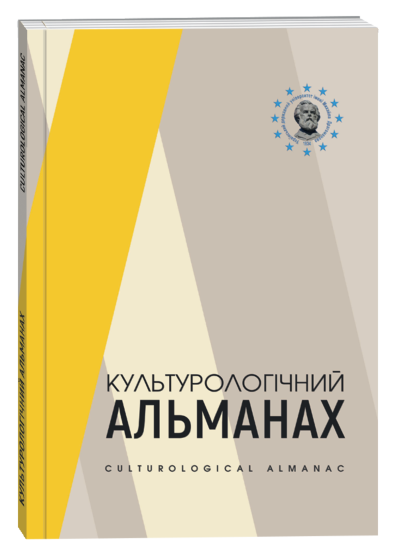NATION, NATIONALISM AND NATIONAL IDENTITY: HISTORIOGRAPHICAL ASPECT OF RESEARCH
DOI:
https://doi.org/10.31392/cult.alm.2023.2.11Keywords:
historiography, phenomenon, historical community, historical territory, social unity, national symbols.Abstract
The work examines and analyzes the meaning and approaches to the scientific study and understanding of such concept as: «nation», «nationalism», and «national identity». The clarification of the understanding and interpretation of the mentioned terms is outlined through the prism of scientific translations of historiographical potential. The article elucidates the main aspects that reflect the understanding and approaches to the formation of a nation based on the works of Ukrainian and foreign researchers. The criteria for what distinguishes a nation from a people have been determined. It has been studied how scientists in their writings determine the factors for the existence of a nation. It is substantiated, in the context of the study of the historiographical heritage, what are the typologies of nationalism, as well as what content can be laid in relation to the understanding of this concept. Using the example of the substantive foundations of G. Kasyanov’s monograph «Theories of Nation and Nationalism», the stages that can be predicted in the formation of «nationalism» are outlined. Analyzing the works of the British researcher of the phenomena of the nation and nationalism Anthony David Smith, the main provisions of the doctrine of nationalism are determined. It is substantiated what approaches the scientist defines regarding the meaning of the term «nationalism» itself. The most important features of national identity, which are characterized in the scientific works of E. Smith, are outlined. Using the rationale of representatives of Ukrainian and foreign historiography, it is determined what role spirituality plays in the formation of a nation and national identity. It is determined to what extent the latter can be correlated with social ideology or religious factors. It is determined how national identity can influence or be combined with ideologies, social movements without losing its uniqueness and originality.
References
Винниченко В. (1990). Відродження нації. В 4-х Т. Київ. 1990.
Енциклопедія сучасної України (2020) / Гол. редкол.: І. М. Дзюба, А. І. Жуковський, М. Г. Железняк так ін.; НАН України, НТШ. Київ: Інститут енциклопедичних досліджень НАН України. 712 с. URL: https://esu.com.ua/ (дата звернення: 22.06.2023).
Зелінська Є. І. (2009). Поняття «нація» та особливості її формування. Мультиверсум. Філософський альманах: Зб. наук. пр. Вип. 80. Київ. С.42-49.
Касьянов Г. В. (1999). Теорії нації та націоналізму. Київ: Либідь. 352 с. URL: http://litopys.org.ua/kasian/kas. htm (дата звернення: 23.06.2023).
Лисяк-Рудницький І. (1994). Історичні есе. В 2 Т. / Пер. З англ. М. Бадік, У. Гавришків, Я. Грицака, А. Дещиці, Г. Киван, Е. Панкеєвої. Т. 1. Київ: Основи. 554 с. URL: https://chtyvo.org.ua/authors/Lysiak-Rudnytskyi_ Ivan/Istorychni_ese_Tom_1/ (дата звернення: 22.06.2023).
Сміт Е. (1994). Національна ідентичність. Київ: Основи. 224 с. URL: http://litopys.org.ua/smith/smi.htm (дата звернення: 22.06.2023).
Сміт Е. (2006). Нації та націоналізм у глобальну епоху. Київ: Ніка-Центр. 320 с. URL: http://litopys.org.ua/ smith/smg.htm (дата звернення: 22.06.2023).








